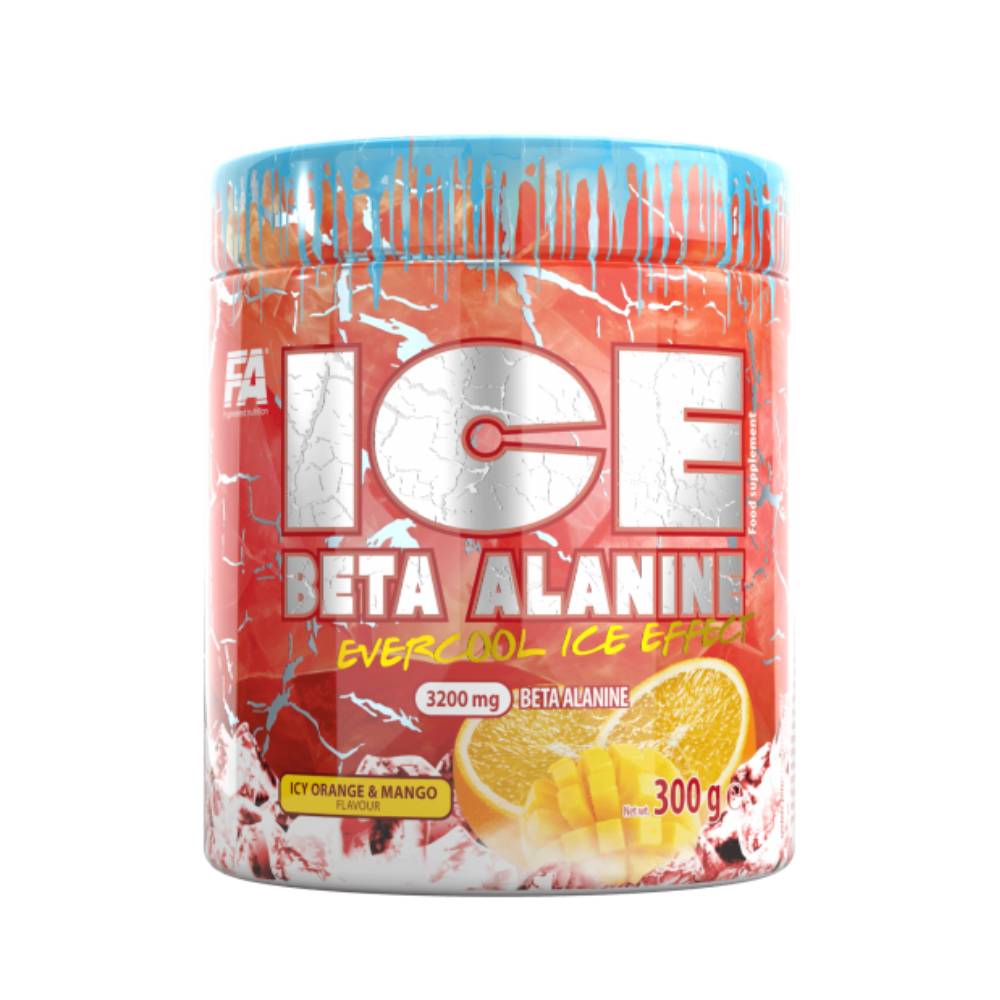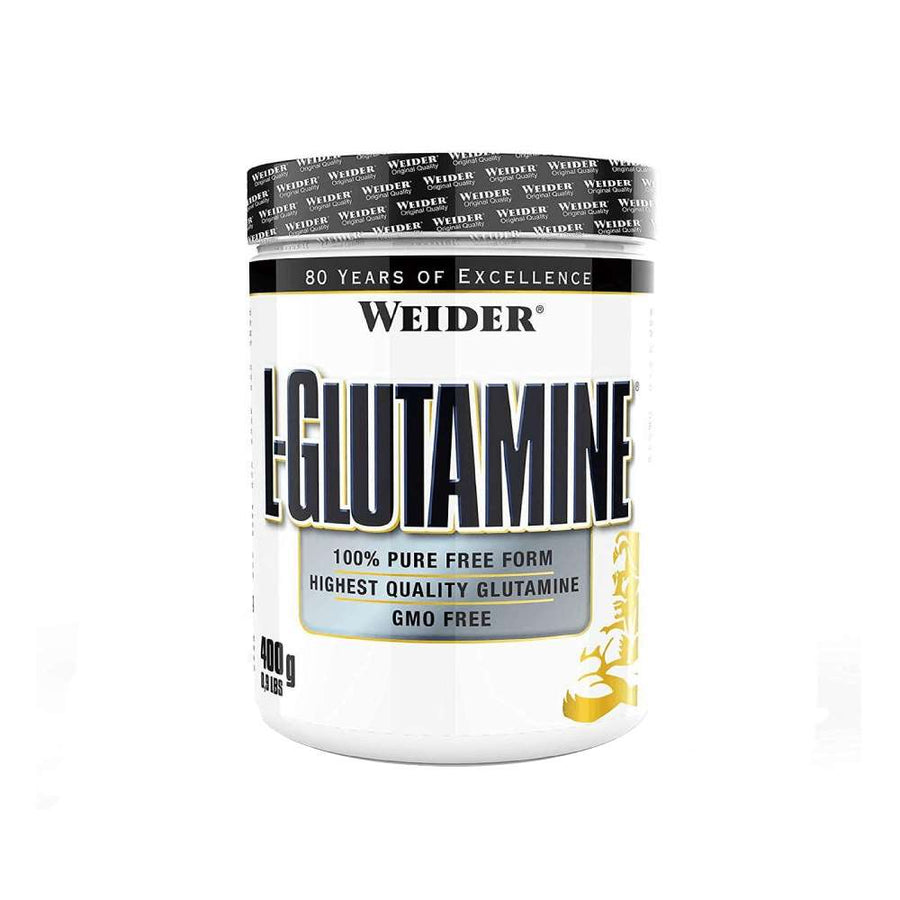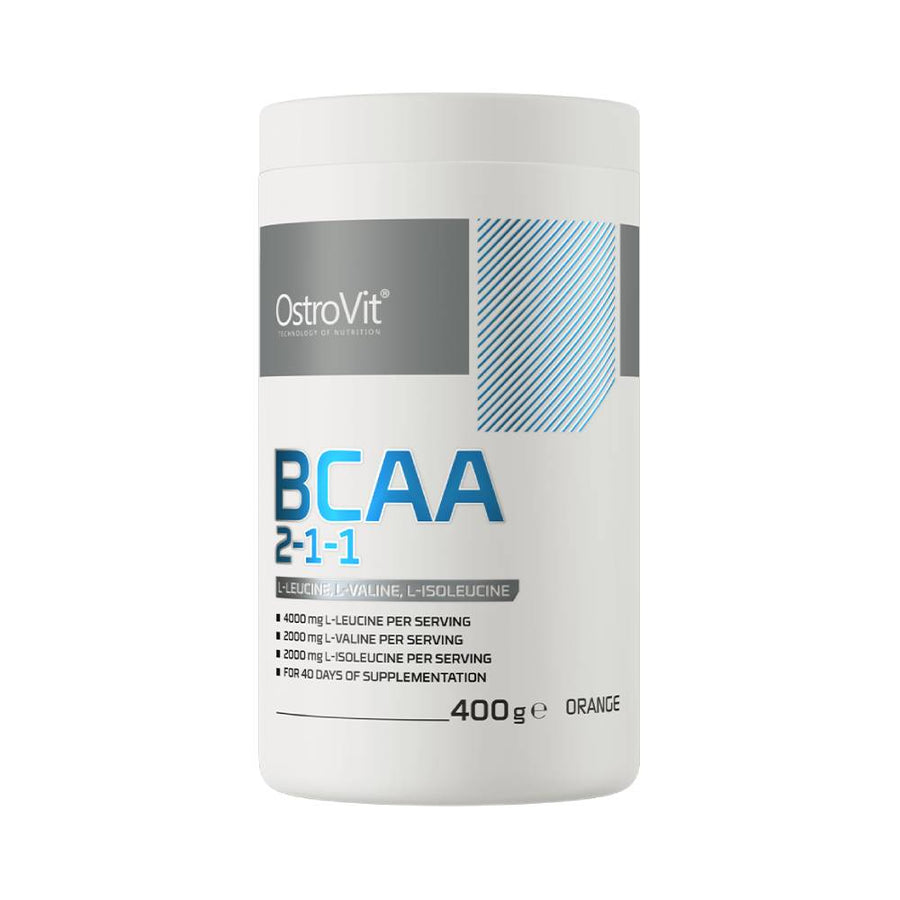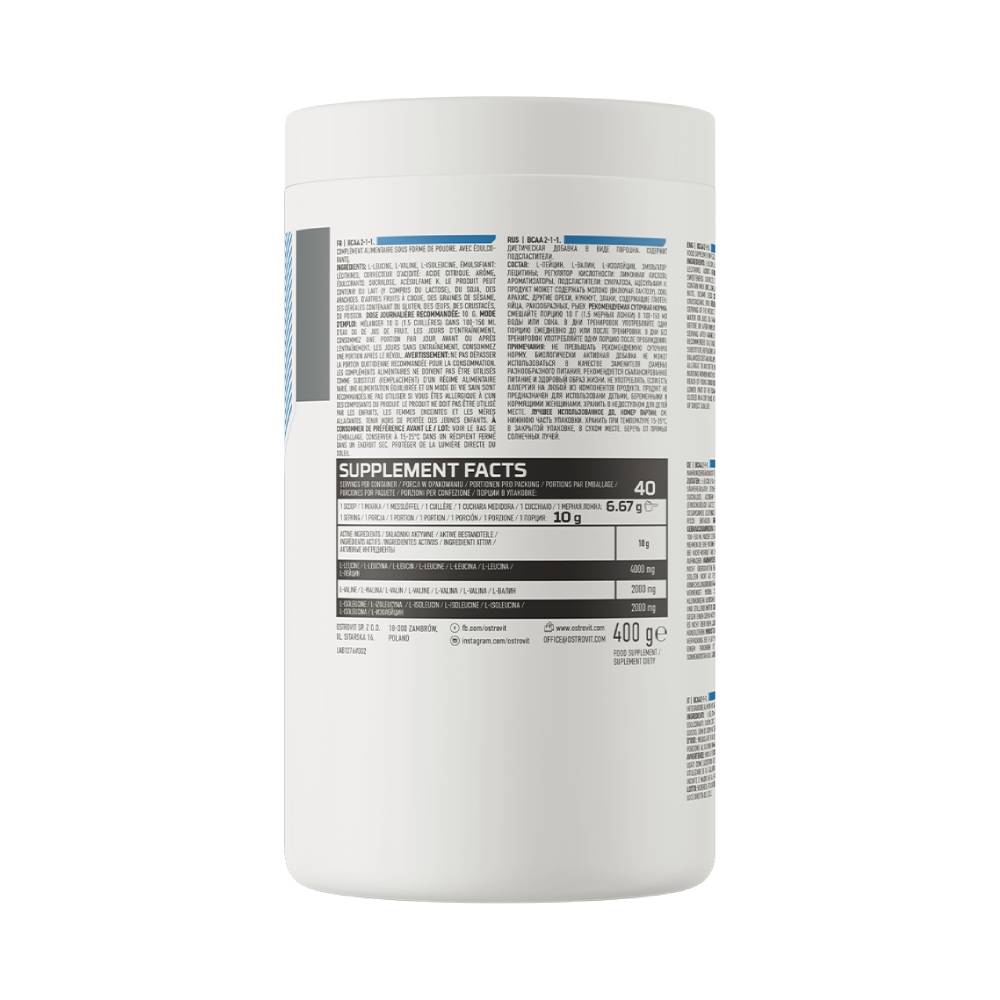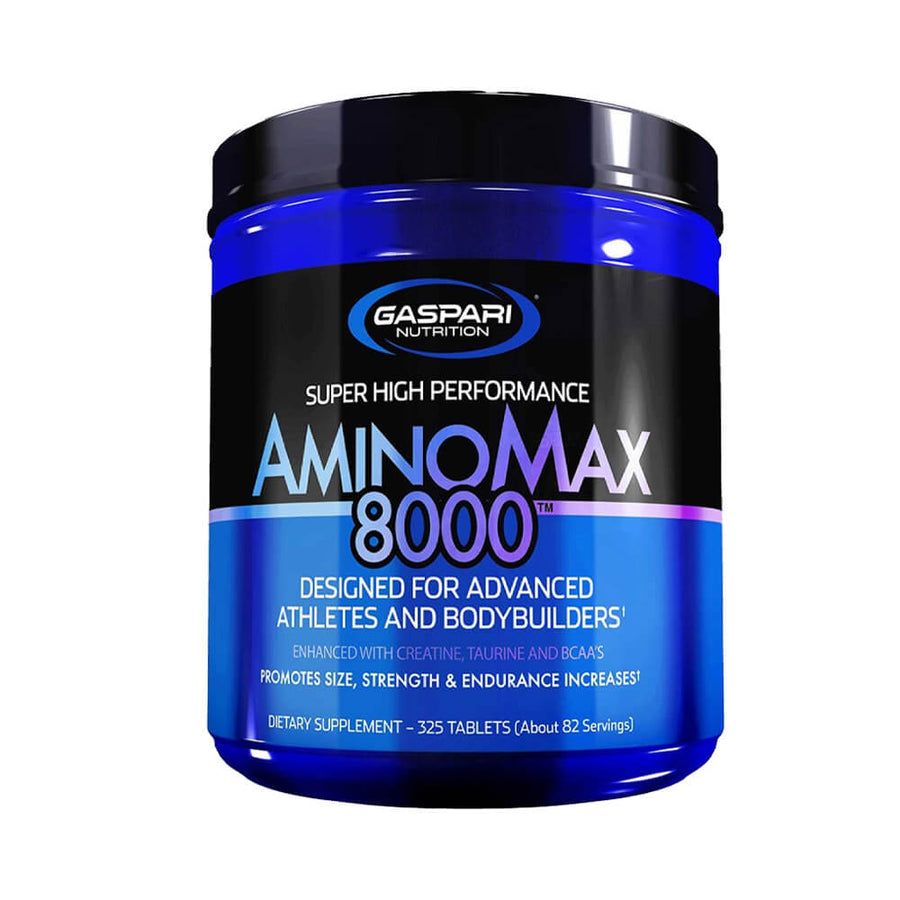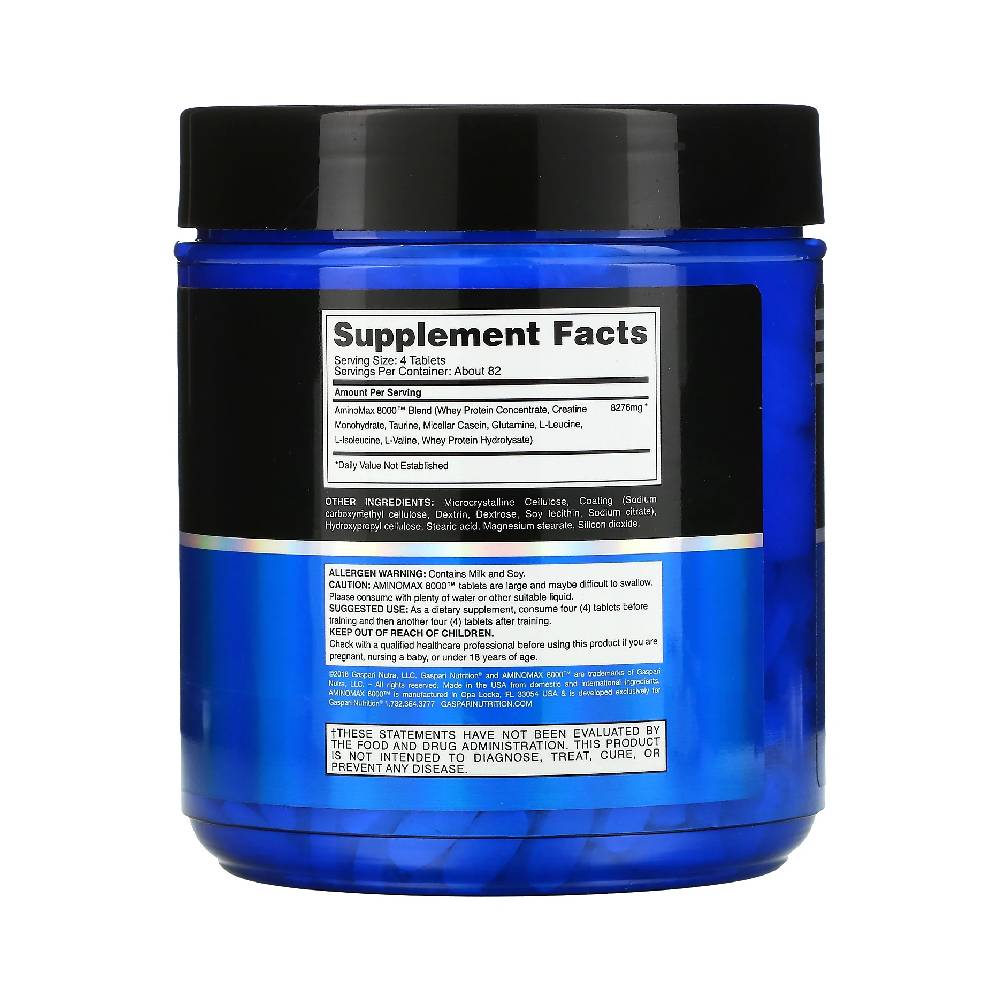Beta alanine - what it is, benefits and how to take it

Beta-alanine is a popular supplement among athletes and fitness enthusiasts due to its ability to improve physical performance and reduce muscle fatigue. This amino acid plays a key role in the synthesis of carnosine, a substance that helps reduce muscle acidity during intense exercise. Thus, beta-alanine contributes to increased endurance and faster recovery, making it an important ally in high-intensity training.
If you want to find out what beta alanine is, how it helps improve physical performance, what its main benefits are, and what administration recommendations should be followed to maximize results, continue reading the article we have prepared for you.
Contents:
1. Beta alanine - what is it and how does it work in the body?
Beta-alanine is a non-essential amino acid that plays a fundamental role in human metabolism. Unlike other essential amino acids, beta-alanine does not need to be obtained directly from the diet, as the body can synthesize it from other amino acid sources. It is an important component of a dipeptide called carnosine, which is found in high concentrations in muscle and other tissues. Carnosine has essential functions in maintaining a stable environment inside muscle cells, and beta-alanine is the key element that makes its synthesis possible.
In the body, beta-alanine combines with histidine, another amino acid, to form carnosine. Carnosine plays a vital role in buffering acidity in the muscles, an essential function during intense physical exercise. When performing high-intensity physical exertion, anaerobic metabolism produces lactic acid, and its concentration in the muscles leads to a decrease in pH, a phenomenon that causes the feeling of fatigue and muscle pain. Carnosine acts as a “buffer” to prevent excessive accumulation of hydrogen ions (H+), thus maintaining a more stable pH and preventing premature muscle fatigue.
Beta-alanine is not only an essential component in the formation of carnosine, but also a key factor in the regulation of acid-base balance at the cellular level. Muscle carnosine concentrations vary depending on the amount of beta-alanine available, and beta-alanine supplementation is an effective method of increasing these levels, leading to better physical performance, especially in exercises involving high-intensity efforts for short periods of time.
Beta-alanine is also found naturally in protein-rich foods such as meat and fish, although the amounts obtained from the diet are usually insufficient to have a significant impact on physical performance. This is why beta-alanine supplements are popular among athletes and people who engage in intense exercise.
2. Beta alanine - benefits and potential adverse effects
Beta-alanine supplementation can bring a number of significant benefits to athletes and people who practice intense physical exercise, but it is also important to consider the possible adverse effects.
Benefits of beta-alanine
- Improving performance in anaerobic and intense exercises
One of the most important benefits of beta-alanine is the increase in carnosine concentration in the muscles. Carnosine plays a crucial role in buffering acidity in the muscles. During intense exercise, anaerobic metabolism produces lactic acid, which leads to the accumulation of hydrogen ions (H+) in the muscles, resulting in a decrease in pH and, implicitly, the sensation of burning and fatigue. Increasing carnosine levels by supplementing with beta-alanine helps prevent this acidification, allowing athletes to maintain their performance for longer periods of time.
 2. Reducing fatigue and increasing endurance
2. Reducing fatigue and increasing enduranceBeta-alanine is effective in delaying muscle fatigue during high-intensity exercise. Supplementation with beta-alanine is known to improve performance in activities that involve short-term, high-intensity efforts, such as sprinting or weight training. This allows athletes to perform more repetitions or engage in high-intensity activities for longer periods, which translates into more efficient training.
3. Improving performance in interval exercises
Interval training, which involves alternating periods of intense effort and rest, is very effective for improving fitness. Beta-alanine can help increase performance during these types of workouts by maintaining a more consistent energy level and reducing the feeling of fatigue that occurs at the end of periods of intense effort.
4. Sustaining performance in team sports
Beta-alanine may also benefit team sports that alternate between high-intensity periods and periods of rest, such as football, basketball, and rugby. Supplementing with beta-alanine helps improve endurance and reduce fatigue, improving athletes' performance throughout the match.
5. Increase muscle mass
Beta-alanine may also contribute to muscle growth. By reducing fatigue and increasing the ability to perform more repetitions or sets during strength training, athletes can stimulate more efficient muscle growth.
Potential adverse effects
Despite the significant benefits of beta alanine, there are also possible adverse effects that you should consider:
- Paresthesia (tingling sensation)
The most common side effect associated with beta-alanine is paresthesia, a tingling sensation in the skin, especially in the hands, face, or feet. This is a temporary effect and is not dangerous, but it can be unpleasant for some users. The tingling usually occurs with high doses (over 800 mg per dose) and disappears within a few minutes of ingestion. This effect can usually be reduced by dividing the doses throughout the day.
2. Stomach discomfort
Beta-alanine supplementation can sometimes lead to stomach discomfort or digestive upset, such as bloating or stomach pain, especially when taken on an empty stomach or in large doses. It is recommended to take beta-alanine with food to minimize this risk.
3. Possibility of overdose
Although beta-alanine is considered a safe supplement when used properly, taking very high doses can lead to an increased risk of side effects, such as stomach discomfort or the tingling reactions mentioned above. It is important not to exceed the recommended dosage and to consult a specialist before starting supplementation, especially in the case of pre-existing health conditions.
3. Sources of beta alanine - foods and supplements
Beta-alanine can be obtained from both food and supplements. Although natural sources provide some beta-alanine, supplements are preferred if you want a significant increase in beta-alanine levels in your body, especially if you practice intense sports.
Natural sources of beta-alanine (food)
Beta-alanine is found primarily in animal products, as it is present in the form of carnosine in animal muscles. Foods rich in carnosine and anserine (a similar dipeptide) are generally animal products, and beta-alanine is released during their digestion.
- Chicken - Chicken, especially breast, is a good source of beta-alanine due to its carnosine content. This is a favorite source of many athletes because it is low in fat and high in protein.
- Beef - Beef is another natural source of carnosine. In addition, beef provides other essential nutrients, such as iron and vitamin B12, which support muscle health and energy.
- Pork - Pork also contains carnosine and is a good source of beta-alanine. This is a popular choice in many cultures as a source of quality protein.
- Fish - Fish, especially saltwater fish, contains carnosine and anserine, compounds that provide beta-alanine. Fish is also an excellent source of omega-3 fatty acids, which are beneficial for heart health.
- Turkey - Similar to chicken, turkey is a good source of carnosine. It also provides a combination of protein and nutrients that are beneficial for muscle health.
Also, plant-based foods do not contain carnosine or anserine, so vegans and vegetarians will not be able to get beta-alanine from their diet. However, if you have such a diet, you can take supplements to benefit from the properties of beta-alanine.
Beta-alanine supplements
To achieve the desired effects in terms of physical performance, many athletes turn to muscle mass supplements . These are designed to increase beta-alanine levels in the body, having a direct impact on the concentration of carnosine in the muscles.
- Beta-alanine powder - is one of the most common forms of the supplement and allows for precise dosing so users can control how much beta-alanine they consume daily. The powder can be added to water, protein shakes, or other beverages.
- Beta-alanine capsules or tablets - are a convenient alternative to powder, easier to administer and ideal for athletes who prefer a pre-dosed form. Capsules typically contain between 500 and 800 mg of beta-alanine per capsule.
- Pre-workouts containing beta-alanine - Many pre-workout products include beta-alanine among their ingredients, along with caffeine, creatine, and other substances intended to enhance performance and provide energy for training. This is a good option if you want to combine several performance-enhancing compounds into one serving.
- Complex Formulas with Carnosine and Anserine - In addition to standard beta-alanine supplements, certain supplements directly contain carnosine or anserine, which provide the body with beta-alanine naturally. These are less common, but can be used by athletes who want an additional muscle acidity buffering effect.
Beta-alanine-based training supplements are useful for supporting muscle mass and overall health, providing a concentrated source of amino acids and important nutrients, such as protein ,vitamins, and minerals necessary for performance and endurance.
Absorption and efficacy of beta-alanine from natural sources vs. supplements
Although natural sources of beta-alanine are a healthy option, the concentrations in food are usually insufficient to produce a significant increase in muscle carnosine levels, especially in active individuals. Beta-alanine supplements are therefore a practical solution for quickly and effectively increasing beta-alanine levels in the body, especially for athletes looking to improve their performance. They allow for more precise dosing and faster absorption, helping to increase muscular endurance and delay fatigue.
4. How is beta alanine administered?
Beta-alanine administration varies depending on personal goals, but to obtain optimal effects on physical performance, it is essential to follow several principles related to dosage and administration rhythm.
Recommended dosage of beta-alanine
The standard dosage for beta-alanine supplementation is 2-5 grams per day . This dose is sufficient to increase muscle carnosine levels and provide significant benefits during intense exercise. Generally, a daily dose of 3.2 grams is considered optimal, but you can start with lower doses to test your body's tolerance.
Administration methods
- Dose distribution throughout the day
To avoid paresthesia , it is recommended that the daily dose be divided into smaller portions, administered at regular intervals. For example, a daily dose of 3.2 grams can be divided into four doses of 800 mg administered 3-4 hours apart. This method helps maintain a constant level of beta-alanine in the body and reduces the risk of tingling.
2. Administration with food
Although beta-alanine can be taken on an empty stomach, the supplement is better tolerated when taken with food. This may reduce any gastrointestinal side effects, such as bloating or stomach discomfort.
3. Using pre-workout supplements
Beta-alanine is often included in pre-workout formulas, being taken before training to increase muscle carnosine levels just before physical exertion. Although beta-alanine works best when taken regularly and not necessarily just before training, its presence in pre-workout products is convenient for athletes who want extra support before training.
Duration of the extension
To achieve a significant increase in muscle carnosine levels, beta-alanine must be taken consistently for 2-4 weeks . Studies show that after this period, carnosine levels increase significantly, and the effects on endurance and muscle fatigue reduction are maximal. Once this phase is reached, the effects of beta-alanine can be maintained by continuing daily supplementation.
Administration in the "loading phase" vs. maintenance
- Loading Phase : Some athletes prefer a loading phase to accelerate the increase in carnosine levels. In this phase, between 4 and 6 grams of beta-alanine are administered per day for 2-4 weeks, divided into smaller doses.
- Maintenance phase : After the loading period, you can switch to a lower dose of 2-3 grams per day to maintain muscle carnosine concentrations.
In conclusion, beta-alanine is an important amino acid for athletic performance, often used for its role in increasing muscle endurance and reducing fatigue. The benefits of beta-alanine are especially evident for athletes who practice high-intensity training, but also for people looking to build muscle mass or improve physical endurance. Correct supplementation can bring faster results than regular nutrition, especially if administered in optimal doses and consistently.
References:
https://www.webmd.com/vitamins-and-supplements/beta-alanine-uses-and-risks
https://www.healthline.com/nutrition/beta-alanine-101
Photo source: HowToGym on Unsplash.com, Aleksander Saks on Unsplash.com.









